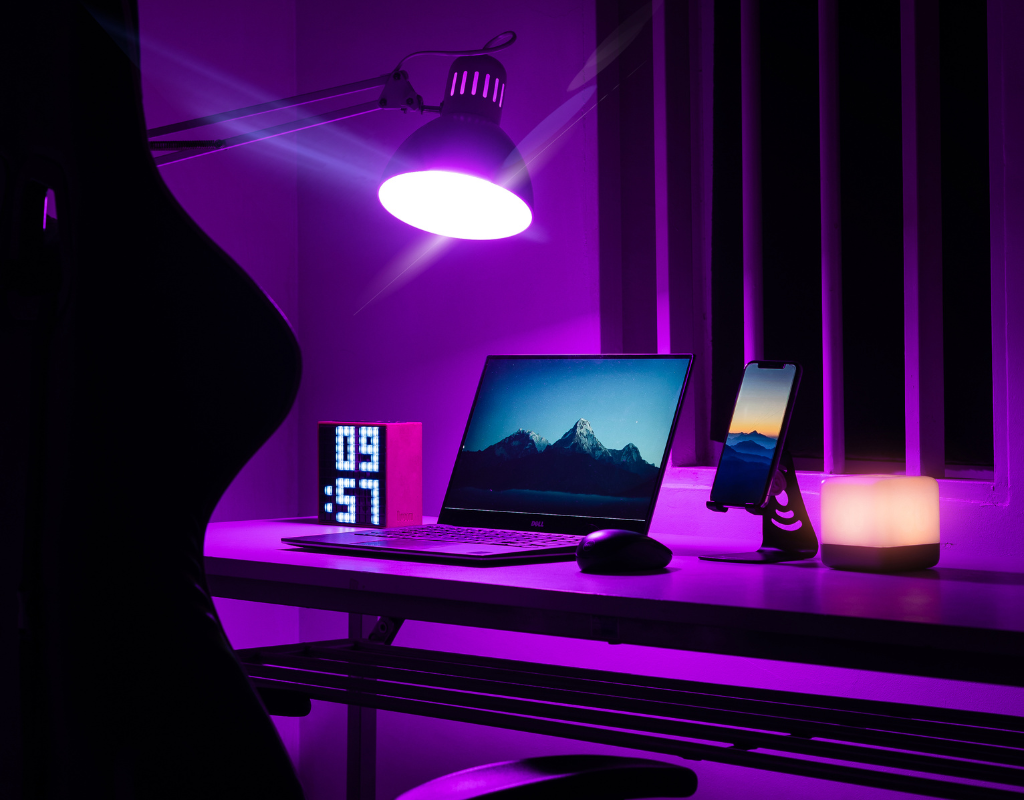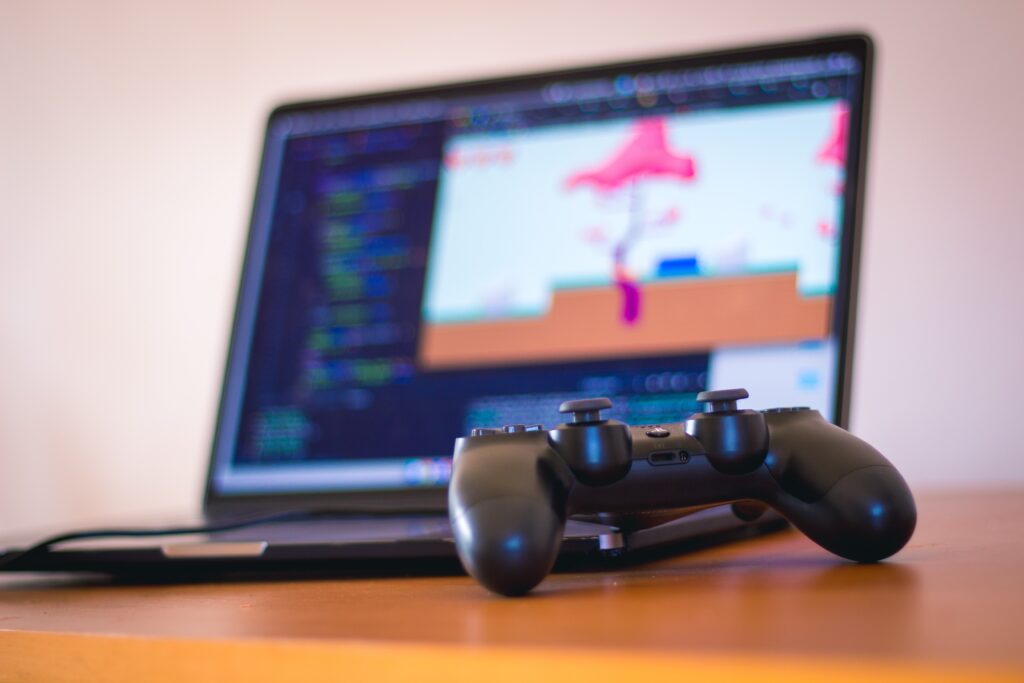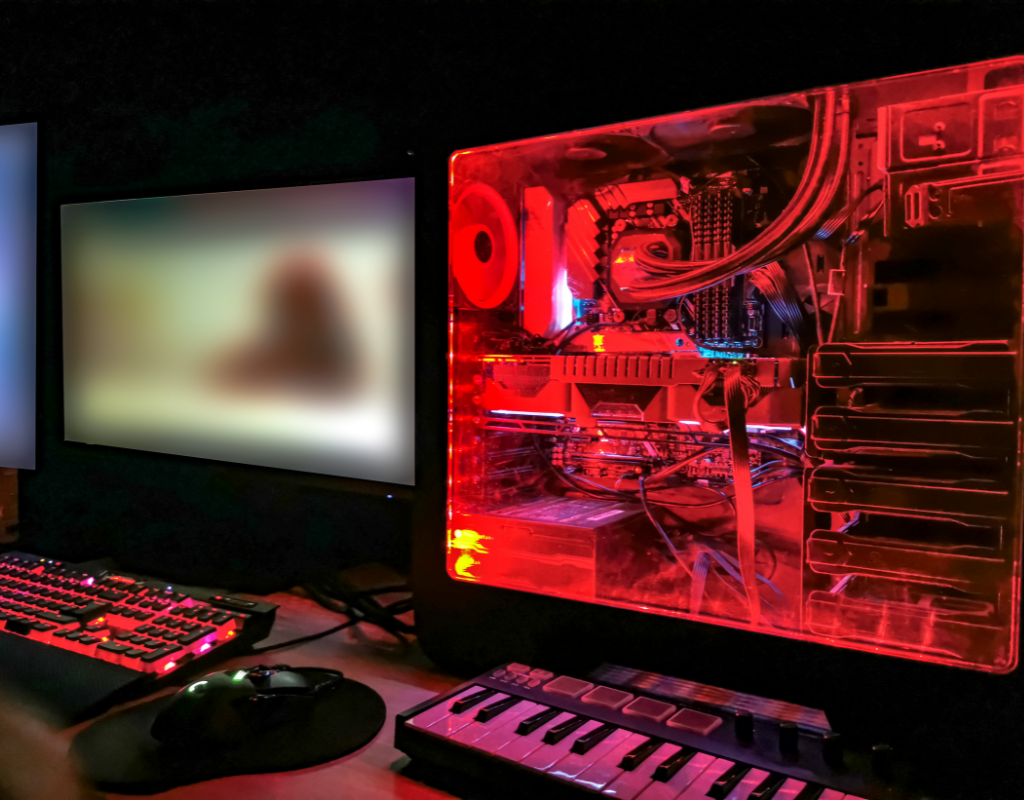New systems are more attractive and have warranties, but they also have pros and cons. Replacing computer hardware doesn’t always require a new laptop. Upgrading your gaming laptop can significantly improve its performance and enhance your gaming experience. Upgrading your graphics card, RAM, and hard drive and updating your drivers is essential for maximum performance. Optimizing your settings and cleaning your laptop can also help improve performance. It is necessary to research your laptop model and upgrade options before making any changes.
To boost your computer’s performance, it’s cheaper to replace its components. Updating a few computer components often fixes problems and saves hundreds of dollars. Upgrading your computer costs a fraction of buying a new one and increases speed and storage. If new components don’t speed up an older system, don’t install them. Instead of buying a new PC, upgrade the components to get the speed you want. First, determine the problem. After identifying the major issue, you can determine whether to upgrade or not.
What Are The Most Important Factors To Consider Before Upgrading A Gaming Laptop?
- While upgrading your laptop’s hardware, it’s important to make sure that the new parts are compatible with the existing motherboard and other parts.
- Consider your financial limitations when planning for the update.
- Determine the upgrade’s objective, such as enhancing gaming performance or multitasking capabilities.
- Examine whether the new components are compatible with the program you intend to use.
- Consider how the upgrade might affect battery life.
- Assess the heat output of the additional components and whether or not the existing cooling system can handle it.
- Verify whether or not the upgrade would affect your laptop’s warranty.
- To ensure the quality and durability of your components, choose a reputed brand.
- Find out if you can add more storage, RAM, or a better graphics card to your laptop.
Can Upgrading My Gaming Laptop Make It Last Longer?
Absolutely, if you are upgrading a gaming laptop, it may last longer. You may boost its performance and make it suitable for the latest games and programs by increasing its RAM, graphics card, and storage. This will allow you to use your laptop for a longer period of time before having to replace it. It’s worth noting that updating a laptop’s hardware may not always be feasible or cost-effective because of factors like its model and age.

Ssd Or Hdd? Which Is Better For A Gaming Laptop
A gaming laptop should have an SSD (solid-state drive). SSDs are speedier than traditional Hard disc drives (HDD), allowing them to read and write data more quickly. This results in faster booting speeds and load times for games and other programs. SSDs are also less prone to failure than HDDs since they lack moving parts, making them more dependable. Finally, SSDs use less power than HDDs. Thus, a gaming laptop with an SSD will have a longer battery life than one having a hard disc drive.
What Are The Benefits Of Upgrading Your Laptop?
A laptop that can handle high-performance games and improve your gaming experience is a basic necessity at this time. Updating your computer can significantly enhance your gaming experience in numerous ways. Here are some benefits of upgrading your gaming laptop:
Improved Performance
Upgrading your gaming laptop’s hardware can improve its overall performance. A faster CPU, GPU, and RAM improve frame rates and load times and reduces lag. It means you can enjoy playing games without experiencing any lag or disruptions. It also allows you to run more demanding games smoothly.
Enhanced Gaming Experience
Upgrading your gaming laptop improves the quality of graphics, sound, and textures. High-quality graphics, realistic sound, and sharp animations make gaming more fun with upgraded hardware components.
More Storage Capacity
Upgrading your gaming laptop allows you to increase its storage capacity. With larger storage, you can store more games, software, and other important files. It eliminates the need to delete outdated games to make way for new ones. Upgrading to (SSDs) can help improve your laptop’s overall performance.
Longer Life Span
Upgrading your laptop’s hardware extends its lifespan. It helps your laptop handle new and demanding games, software, and applications better. It also means it will run smoothly and efficiently for extended periods. A well-maintained gaming laptop can serve you for several years without any significant hardware upgrades.
Compatibility With New Games
When game developers release new games, they often require newer and better hardware specs to run smoothly. Upgrading your gaming laptop ensures that it can handle any new games. It also means you can enjoy playing new games without any lag or issues.
Better Heat Management
Upgrading your laptop’s hardware can also improve its heat management system. Liquid cooling and heat sinks keep your laptop cool while gaming. You may play games without worrying about your laptop overheating.

Here in this article, we are going to discuss some tips and tricks that can help you in upgrading your gaming laptop and will maximize your laptop’s performance.
1. Identify Your Laptop’s Limitations
Before upgrading your gaming laptop, identify its limitations. You can check your laptop specs in Windows’ device manager. The benchmark test can also assess your laptop’s performance. The benchmark test will show how well your hardware performs.
Software such as 3D Mark or FurMark can be used to perform the benchmark test. CPU-Z software checks CPU specs, while GPU-Z checks GPU specs. Knowing your laptop’s limitations will help you choose the right components to upgrade.
2. Upgrade Your Graphics Card
The graphics card is the primary component that can bring a lot of improvement in a gaming laptop. It’s the part that makes a huge difference in how smoothly and quickly games run. If you upgrade your laptop’s graphics card, then you can enjoy higher-quality visuals of modern games. If your laptop is struggling while running today’s modern games, then you must upgrade your laptop’s graphics card.
The graphics card in different laptops can be upgraded in different ways. Some laptops use dedicated graphics cards. These graphics cards can be swapped out and can simply be replaced with more powerful models. Certain laptops, however, have graphics cards built into the motherboard and so cannot be changed. So, first of all, Check your laptop model to determine whether you can upgrade the graphics card or not.
Before upgrading the graphics card of your laptop, do some research and make sure it is compatible with your laptop. Check the specifications, particularly the Storage, RAM and processing power, to ensure the graphics card is compatible with your laptop. You can check different GPUs available in the market. You can do research for the one that is best. For this, You can study some comparisons of GPUs like RTX 4060 vs RTX 3060, RTX 3070 Ti vs RTX 3070 etc. and then can opt for the one that suits you. If you want to be sure you’re making the appropriate choice, you can seek advice from the manufacturer or an expert.
3. Memory Should Be Upgraded
Upgrade your gaming laptop’s RAM first. RAM is another important component of your gaming laptop’s performance. RAM is the component in charge of keeping programs running and tasks completed. It is a temporary memory bank in which your computer stores data that you need to access quickly. RAM keeps data available so that your processor can find it fast without needing to access long-term storage to accomplish immediate processing tasks. It is important for gaming laptops to have enough RAM to keep up with recent games. A lack of RAM might cause your laptop to be sluggish or even hang, which is inconvenient.
Most gaming laptops have 8GB RAM. As games become more demanding and power-hungry, boosting your RAM to 16GB or 32GB will greatly improve your gaming experience. Upgrading Memory is easy:
- Know your gaming laptop’s Memory type before buying fresh RAM. To avoid buying the wrong one, verify your computer’s specs. After determining your laptop’s RAM, you can buy it from a reputable computer store.
- Before removing the RAM module, switch off your laptop, and unplug all accessories. After finding your RAM slots, remove the old module by carefully pressing down the clips or tabs on each side. You can then uninstall the module.
- Insert the new RAM module from the bottom, aligning the slot and module. Push the module down until it clicks and locks the clips or tabs.
- Test your laptop after inserting the new Memory module. Control Panel > System > System Properties shows your computer’s Memory.
Increasing your laptop’s RAM can greatly improve its performance. Check your laptop’s Memory compatibility and discover what upgrade options are available. Add more RAM, especially if you’re playing memory-intensive games like high-performance 3D games.
4. Upgrade Your CPU
Your laptop’s CPU is its brain, and upgrading it can boost its performance. Upgrading your CPU is expensive, so it’s important to decide if it’s worth it.
Check your laptop motherboard’s compatibility before upgrading your CPU. Make sure the new CPU fits the laptop socket. You may need a new motherboard if the new CPU doesn’t fit.
5. Upgrade Your Screen
If you’re planning on playing games that require high resolution, upgrading your screen can improve your gaming experience. Laptop screens with a higher resolution are more expensive, but they offer better image quality, and you’ll be able to see your games in more detail. When buying a gaming monitor, make sure your graphics card supports the resolution. An 8K monitor with an outdated integrated graphics card is pointless.
6. Replace Your Hard Disk
Upgrading the hard drive on your gaming laptop is another way to enhance its performance. All of your files and data, including your games, are kept on your laptop’s hard drive. Your gaming performance may suffer if your hard disc is full or obsolete. Increasing your laptop’s hard drive can enhance its storage space and speed, which can cut load times during games and speed up game load times.

Hard disc drives (HDD) and solid-state drives (SSD) are the two types of hard drives (SSD). HDDs are slow and inefficient, whereas SSDs are newer, faster, and more efficient. SSDs are more expensive, but they give faster load times and overall performance improvements. You can also install a second SSD to increase storage and improve the speed of your laptop.
7. Maintain Your Drivers
Updating your laptop’s drivers can make it function better. Device drivers are software components that allow the hardware and software on your laptop to communicate with one another. When playing games, outdated or missing drivers can create performance issues, leading to low frame rates or even crashes.
Make careful to update your laptop’s drivers on a regular basis, especially if you install a new hardware component like a graphics card. You can use driver update software to find and install the most up-to-date drivers for your laptop. Make sure to check the manufacturer’s website for updates as well.
8. Adjust Your Preferences
Adjusting your laptop’s settings can also help it operate better. Changing the graphical settings in-game and lowering the resolution can have a significant effect. Reducing the graphics quality might enhance the frame rate of your laptop and improve gameplay. You can also disable any other apps that are operating in the background in order to free up memory and processing resources for the game.
9. Clear Out Your Laptop
Finally, cleaning your laptop can make it function better. Dust and dirt can accumulate in your laptop’s fans and vents over time, causing it to overheat. Overheating a laptop reduces performance and might harm internal components.
You should clean your laptop on a regular basis to keep the fans and vents free of dust and debris. You can blow out the dust using compressed air or remove the trash with a Hoover equipped with a suitable nozzle. You can also use a cooling pad to lower the temperature of your laptop while gaming.
Conclusion
Updating your gaming laptop might boost its performance and your gaming experience dramatically. Updating your graphics card, RAM, hard drive, and drivers is critical for peak performance. Cleaning and optimizing your settings also assist increase performance.
Before making any changes, it is critical to investigate your laptop model and upgrade choices. Get guidance from a professional or manufacturer to ensure that you make the best decisions. Your gaming laptop may give an outstanding gaming experience for years to come with the appropriate upgrades and settings.
To Read More Tech Blogs Visit: Technical Nick

















